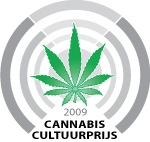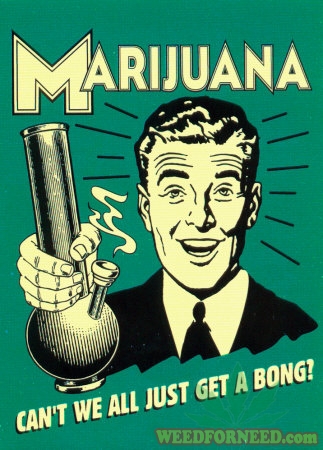18 negative effects of the ban on cannabis

Here is a list of some of the negative effects of the ban on cannabis:
- The ban on cannabis means that in addition to the coffeeshops and people who grow for their own use, an illegal market in cannabis also exists. There is no possibility of control over this illegal market which leads to criminality, unsafe situations, and events that disturb the peace; and to which underage people have easy access.
- The ban on cannabis makes large scale crops and export of the product into a lucrative source of income for criminal organizations which can then use this income for other criminal activities, or ‘wash’ it via money laundering operations that can disturb the legal economy.
- The ban on cannabis encourages criminal and antisocial behavior: rules concerning safety and security (for growing and in the marketplace) are easily broken and this goes unpunished. Conflicts are resolved using violence.
- The ban on cannabis leads to an increase in prices, as the producer in an illegal market calculates their risk into the price.
- The ban leads to a migration of tourists to coffeeshops near the borders of the country, and the operation of ‘drug runners’ to transport the product. Simple solutions for this problem such as the proposal for a so-called ‘Weed Boulevard’ with legal supply logistics are held back by the ban on cannabis.
- The ban on cannabis puts enormous pressure on the resources of the police and the justice system, which cannot then devote them to other, more important goals. Some of the methods used to enforce the ban limit the personal freedom of civilians and are a matter of contention in court.
- The costs of enforcing the ban on cannabis are not justified by the results. Although the goal of the ban (an essential reduction in supply and demand) fails to come a single step closer, the ban itself is never brought forward for discussion.
- The ban on cannabis damages the credibility of the government, given that the use of cannabis continues to be firmly naturalized in society.
- The (world-wide) ban on cannabis is one of the pillars of the U.S. dominated War On Drugs, which has led to sizeable global violations of human rights; and severely damages both the environment, and the security of the populations of cannabis-producing lands.
- The ban on cannabis impedes the development of the industrial applications of the plant, which is capable of making a very valuable contribution to a sustainable future.
- The ban on cannabis makes it impossible to carry out standardized controls on the product. Therefore demands can hardly be placed on the product in terms of consistent quality, health, or accompanying information on the contents and effects of the product.
- The ban on cannabis leads to unwelcome and unhealthy practices in production which negatively affect the quality and effects of the product, and thereby damage the health of the consumer.
- The ban on cannabis criminalizes the cannabis consumer (over one million Dutch people), with negative social consequences for the people in question, their relationships, their family, and their home and work environment.
- The ban on cannabis is a restriction of the right to freedom of expression. It legitimizes information about the supposed evils of cannabis, information that cannot be seriously tested for durability, credibility or truthfulness and yet is used as justification for the active enforcement of the ban.
- The ban on cannabis damages the right of the individual to make decisions about his / her own body.
- The ban on cannabis damages the right of the individual to possess a medicine that is necessary to maintain or support his or her health and wellbeing.
- The ban on cannabis dissuades doctors from prescribing it to patients who could benefit from the effects; and delays the process of recognition of its medicinal applications in the treatment of multiple afflictions such as HIV and AIDS, Multiple Sclerosis, cancer, and chronic pain.
- The ban on cannabis denies the government the possibility of levying taxes on the product.
Chairman Of British Advisory Drug Council Got Sacked
 Last week we talked about Professor David Nutt, the (former) chairman of the Britisch Advisory Council on the Misuse of Drugs. He accused ex-Home Secretary Jacqui Smith of “devaluing” scientific research and making an “artificial” separation of alcohol and tobacco from illegal drugs.
Last week we talked about Professor David Nutt, the (former) chairman of the Britisch Advisory Council on the Misuse of Drugs. He accused ex-Home Secretary Jacqui Smith of “devaluing” scientific research and making an “artificial” separation of alcohol and tobacco from illegal drugs.
Marijuana Said to Trigger Heart Attacks
 Here is something we found on the Harvard gazette website. Although the risk of having a marijuana associated hearth attack is very small (around 1 in 100,000) this news is very likely to be miss-used by the anti marijuana lobby.
Here is something we found on the Harvard gazette website. Although the risk of having a marijuana associated hearth attack is very small (around 1 in 100,000) this news is very likely to be miss-used by the anti marijuana lobby.
Cannabis Ebonics – Stoner Terms
We found this list of stoner terms online and thought we’d share them. Some of the terms are more frequently used in America however most (if not all) have made their way into the international stoner vocabulary. We also dug up a classic clip of Ali G listing other stoner terms:
April 20th (4/20) – International Cannabis Day, everyone blazes on this day. Everyone blazes at 4:20 every day too.
Top U.K government scientist says: Cannabis evidence ‘was devalued’
We came across this interesting thread on the BBC website which refers to a lecture given by Professor David Nutt, of the Advisory Council on the Misuse of Drugs. Professor Nutt used a lecture at King’s College in London and a briefing paper to attack what he called the “artificial” separation of alcohol and tobacco from illegal drugs, accusing ex-Home Secretary Jacqui Smith of “devaluing” scientific research. He also criticizes the scare-tactics of the U.K government on the issue and claims that the link between cannabis use and schizophrenia is hugely over-exaggerated; This story has some traction and has been on rotation on both BBC News 24 and British terrestrial television! It is a blow to the U.K government as Professor Nutt is the new chairman of the Government’s Advisory Council on the Misuse of Drugs – popularly known as the government’s “Drug Czar”.
Houses made of hemp could help combat climate change!
We have recently come across this very interesting press release from Professor Peter Walker at the University of Bath (U.K) who is leading the research into the use of hemp-lime in construction. Buildings and other infrastructure currently accounts for almost 20% of the UK’s eco-footprint. This is another example of how this wonderful plant can help save reduce carbon dioxide emissions. Recently we brought you the news that Hanes – one of the worlds biggest consumer brands – has been investing in a new hemp technology called Crailar which requires only a fraction of the water needed to make cotton; and we are very happy to announce that it is the subject of another of our articles, a Dutch company called Hempflax who has won the contract to supply the raw materials to Hanes – i.e. the HEMP!
GASPAR FRAGA – IN MEMORIAM
October 17th 2009 saw the end of one of the most significant contributions to the antiprohibitionist fronts in Spain and Europe of the past decade. Gaspar Fraga Gonz?lez, founder and director of Ca?amo magazine, shed his mortal coil and peacefully departed on his final trip, surrounded by his loved ones, at the age of 65. His long battle with cancer had broken his body, but not his will. As the Commander of the Ca?amo vessel, he stood at the helm until the very end, inspiring those around him with his strength and determination in the face of adversity. His remains were put to rest in his beloved city of Barcelona to the music of his also beloved Frank Zappa and the adulations of the many present. He is survived by his two wifes, Sara and Mari Carmen, his daughter Lidia, two grandchildren, and many loving friends.
Marc Emery – Prince of Pot
Here’s a piece I found on Marc Emery on U.S TV – it includes an interview with his wife Jodie Emery and is well worth a watch!
New medical marijuana policy issued by the President
The Obama administration announced today that it will not seek to arrest medical marijuana users and suppliers as long as they conform to state laws, under new policy guidelines to be sent to federal prosecutors Monday 19th October. A 3-page memo spelling out the policy is expected to be sent Monday to federal prosecutors in the 14 states which allow some use of marijuana for medical purposes, and also to top officials at the FBI and the DEA.
The High Cost of Empty Prisons
New York:
Last Wednesday (07/10/09), changes to New York?s notorious Rockefeller drug laws went into effect, allowing judges to shorten the prison terms of some non-violent offenders; particularly those incarcerated for non-violent crimes such as cannabis posession. This measure will further reduce New York?s prison population, which has already declined in the past 10 years from about 71,600 in 1999 under Mayor Rudy Giuliani to about 59,300 today – The state?s crime rate also dropped substantially during that time.
Nevertheless, the state has been slow to close prisons; this is a multi-billion-dollar industry – opposition from the correction officers? union and politicians from the upstate areas where most of our correctional facilities are has been fierce.
